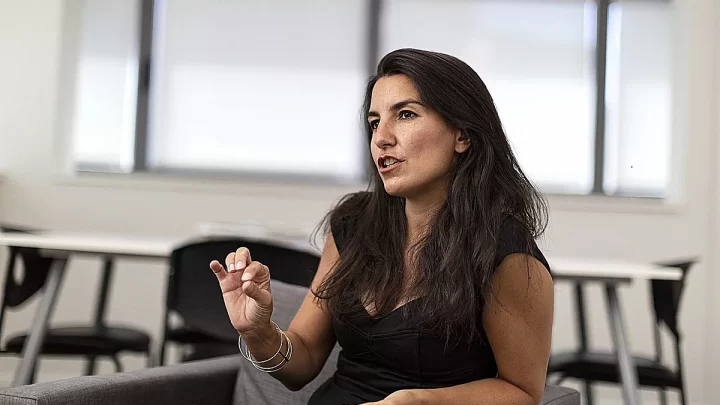Rocio monasterio opus dei
rocío monasterio cuba family
Transphobia was the protagonist in the afternoon of that March 10, 2017, but in front of the two young men, wrapped with the LGTBI flag, a woman, in blue jacket and black hair, watched. She was also smiling, impassive, with the same cold smile she wears today. She chorused the same slogans as the rest of the passengers in the vehicle. There she was, in a discreet background while Arsuaga was hogging all the flashes, Rocío Monasterio.
The communication managers of the formation refused to grant an interview to this newspaper after asking for different ways to speak with Rocío Monasterio. Her story, however, is known to have begun before, long before she was even born. It was on the other side of the Atlantic, on the largest island in the Caribbean.
Already in the 20th century, the Falla Gutiérrez-Monasterio group appeared as the owner in charge of managing the company’s production. They had the favor of such important names as Fulgencio Batista, the dictator who took power by force with the coup d’état in 1952, four months before the presidential elections.
rocío monasterio architect
The provincial press in the narration of the act made a slight allusion to the incident but besides being serious that in an act of Vox -with 2,500 people immersed in an atmosphere of stage fright of high dimension- a score of affiliates protest and question their leaders there is another element that would justify this action. It is the situation of extreme division in which the formation of Santiago Abascal lives in the province of Malaga and that was evidenced in this protest but also has other expressions.
On the specific case of the municipal list that Vox presents in Marbella, there are strong, tremendous, accusations against some of its components. They criticize that they have left out of the candidacy «the whole team that had been working since October. And they have done it without warning, just three hours before the closing of the lists – the news has already been published in ABC… a disaster and at the worst moment».
rocío monasterio curriculum
Lourdes Méndez Monasterio (Córdoba, 1957) has perfect diction. The national deputy of Vox for the Region of Murcia speaks slowly and politely, although her words are forceful. Especially when it comes to abortion, whose more radical stance distanced him from Rajoy’s government to the point of losing power in the Popular Party and leaving it in 2017.
When Mariano Rajoy reformed, but did not repeal, in 2015 the abortion time limits law approved by Rodríguez Zapatero, the lawyer then broke the discipline of vote along with four other PP deputies. In 2017 her amendments on abortion and euthanasia were ignored at the party congress and she ended up resigning.
Her maternal grandfather was General José Monasterio, a prominent Francoist military officer who collaborated with the preparation of the 1936 coup d’état and whose role was fundamental in defeating the Republican forces in the battle of Teruel.
He presides over the Asociación Familia y Dignidad Humana, which aims to «promote the protection of human rights, especially the defense of human life from conception to natural death, of the family founded on the marriage of a man and a woman, of the rights of children and minors».
santiago abascal
The origins of the leader of VOX in the Community of Madrid, who is currently trying to penetrate the working class neighborhoods with a ‘lepenist’ strategy similar to the Catalan one, are anything but humble. Rocío Monasterio enjoys an apartment in the exclusive neighborhood of Chamartín valued at approximately three million euros near the Paseo de La Habana.
It is a complex of 545 square meters, with four floors, elevator, gym, garage and solarium pool. In addition, he has declared to have five other properties received in inheritance: two in Asturias and others in Madrid, as well as a plot of land (in Asturias) and a commercial premises plus a warehouse in Madrid.
It is necessary to put in context. We are talking about a context, the Fulgencio Bastista dictatorship, an extreme right-wing regime that allowed landowners to do things and kept Cuba as a brothel and home to all kinds of mafias, especially from the United States.
When he left school he studied architecture, went to Miami for a brief period to have contact with the Cuban community and then returned to Madrid, where he met Iván Espinosa de los Monteros.







